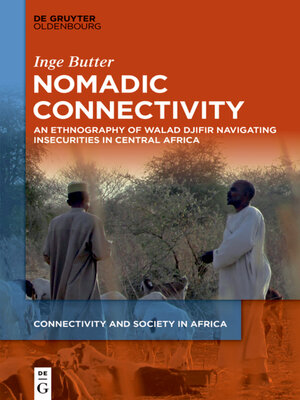Nomadic Connectivity
ebook ∣ An Ethnography of Walad Djifir Navigating Insecurities in Central Africa · Connectivity and Society in Africa
By Inge Butter

Sign up to save your library
With an OverDrive account, you can save your favorite libraries for at-a-glance information about availability. Find out more about OverDrive accounts.
Find this title in Libby, the library reading app by OverDrive.



Search for a digital library with this title
Title found at these libraries:
| Library Name | Distance |
|---|---|
| Loading... |
A focus on the everyday has produced this ethnography, which hopes to give a nuanced voice to an extended family of semi-sedentary nomads, living at the centre of a country and region known for its political turmoil, ecological insecurities, and socio-economic hardship. The everyday of the Chadian Walad Djifir is one in which sedentarity and mobility are approached as two entwined parts of a whole, and where economic and geographical boundaries do not necessarily form constrictions. The ferīkh (nomadic camp) is where all of the Walad Djifir's networks meet, and often also begin— a physical place embodying various networks and connections, which span time and geographical space. This analytical and methodological approach gives insight in how regional trends can be understood in light of the Walad Djifir's daily lives. Over time, the Walad Djifir have developed ways of coping and dealing with insecurities, interacting with infrastructural, technological, and socio-political developments in specific ways. In exploring how such insecurities and crises become anchored into the everyday, the ferīkh provides answers. It is precisely the mundane elements of daily life which anchor disruption.







